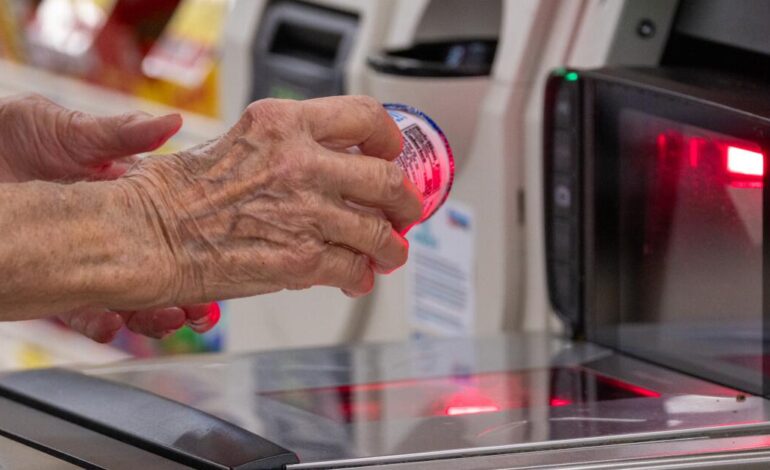Long Beach Implements New Rules to Combat Rising Shoplifting Rates

Long Beach has introduced a new ordinance aimed at addressing the rising issue of shoplifting that has been troubling retailers and consumers alike. The recently enacted “Safe Stores are Staffed Stores” ordinance mandates that major food and pharmacy retailers increase staffing levels and limit the use of self-checkout stations in an effort to enhance public safety and reduce theft incidents.
The ordinance, which took effect in March 2024, requires large stores to have at least one employee for every three self-checkout stations and caps the number of items a customer can scan at self-checkout to 15. Additionally, any items locked in display cases may no longer be purchased through self-checkout. This legislation is the first of its kind in the United States and has sparked a heated debate among retailers, employees, and shoppers.
Proponents of the ordinance, including Matt Bell, secretary-treasurer of UFCW 324, argue that the new rules will protect both employees and customers from dangerous situations. Bell stated, “The checkers and the cashiers are on the front lines of this. It really is necessary to provide them safety and security and better staffing.” The city council’s decision stemmed from concerns over “hostile and unsafe” conditions at stores, particularly at self-checkout kiosks.
According to the National Retail Federation, incidents of shoplifting in the United States increased by an alarming 93% from 2019 to 2023. In 2023 alone, retailers reported an average of 177 thefts per day. As theft becomes more prevalent, many retailers have taken measures to increase security and limit access to frequently stolen items.
The implementation of the Long Beach ordinance has led to immediate operational changes. Some stores have temporarily closed their self-checkout lanes in response to the new requirements. For instance, a sign at a Vons in downtown Long Beach stated, “We are currently unable to operate our self-checkout lanes … due to a new City of Long Beach ordinance.” At a nearby Target, only five self-checkout stations were operational, monitored by just one employee.
Many shoppers, like Francilla Isaac, have reported longer lines and confusion over the new restrictions. Isaac expressed disappointment over the closures, stating, “I use it a lot when I’m just here to get a few items. But all the stores are the same now, they have it closed.”
Retailers, including major chains like Target and Walmart, have voiced concerns about the potential impacts of the ordinance. The California Grocers Association warned that the changes could lead to increased labor costs and higher prices for consumers. Nate Rose, a vice president at the association, pointed out that the ordinance might lead to a reduction in sales as stores close self-checkout lanes.
Rachel Michelin, president of the California Retailers Association, criticized the ordinance for being overly restrictive, stating, “The problem with the Long Beach ordinance is that it’s so constricting. I think we’re going to see unintended consequences.”
Despite the pushback from retailers, the city remains firm in its commitment to combat retail theft. The Long Beach ordinance, according to city officials, is designed to “advance public safety and prevent retail theft,” addressing the challenges that many consumers face when shopping in a climate of fear over theft.
Some residents, like Lisa Adams, who visits Long Beach from Utah regularly, acknowledge the necessity of the ordinance despite the inconvenience. Adams noted, “I miss easy access to self-checkout and hope it will return soon, but they understand the need to tamp down on theft in the city.”
As Long Beach moves forward with these regulations, the ongoing debate about the balance between security and convenience in retail settings is expected to continue, shaping the future of shopping in the city.






